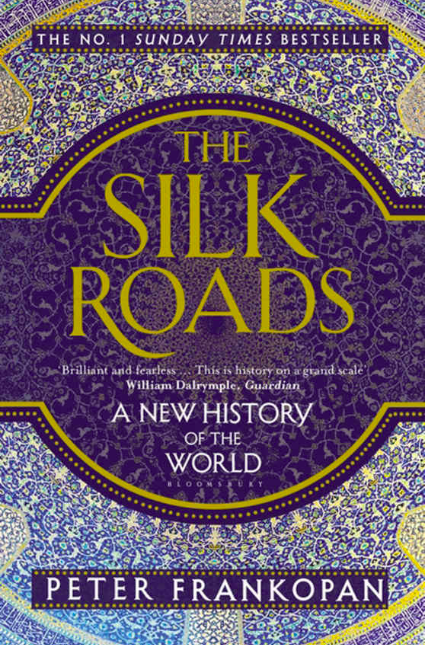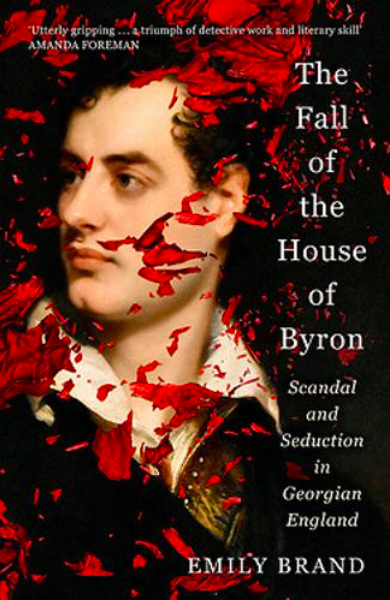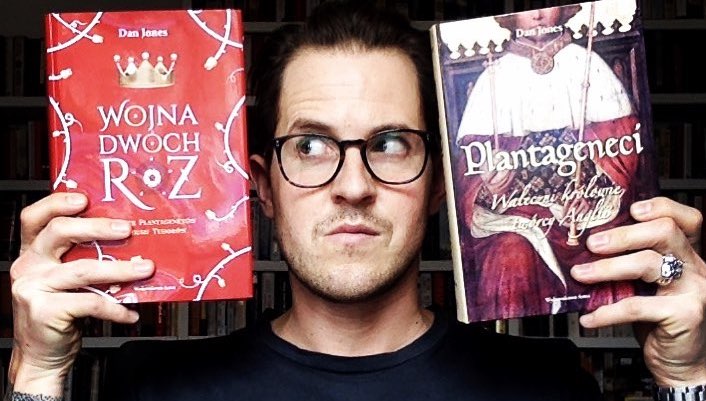‘May you live in interesting times’. So the Chinese curse goes, and we undeniably live in interesting times, alas. But that doesn’t mean the past has lost any of its allure; indeed, quite the opposite. Right now, it’s just the tonic we need. If you found history dull at school, being merely an endless parade of facts and heavy-handed analysis, then you are the perfect potential reader for these superb examinations of past eras by some of Britain’s best popular historians.
Here are half a dozen of our favourite page-turning history books, guaranteed to have you rapt and astonished at the revelations therein.
Dan Jones – The Plantagenets (William Collins, £10.99)
Perhaps the most popular new historian of our generation is the medieval writer Dan Jones. Young (he’s not even 40 yet) and lavishly tattooed, he’s as well known for his regular appearances on television as he is for his excellent books. He first came to public attention with his bestselling 2012 account of the Plantagenet kings and queens, which mixed in-depth psychological portraits of some of Britain’s best-known rulers with thrillingly depicted battle scenes and edge-of-seat cliff-hangers. If you’ve ever found the idea of medieval history dull and remote, read Jones’s books (which also include The Templars and Crusades), and you’ll be transported to the real-life world of Game of Thrones.
Simon Sebag Montefiore – Jerusalem: The Biography (Weidenfeld & Nicolson, £14.99)

The historian Simon Sebag Montefiore is that old-fashioned thing, a Renaissance man, whose enviably varied career includes everything from comic novels about Stalin to bestselling children’s books about the Royal Rabbits of London. He’s well known for his brilliant examinations of Russian history, including The Romanovs, but it’s his sweeping, fascinating 2011 account of the city of Jerusalem that is arguably his best book. It’s told with both scholarly thoroughness and rich humour, bringing to life the city’s history from its foundation under King David to the Sixties in truly gripping fashion.
Andrew Roberts- Churchill: Walking with Destiny (Penguin, £14.99)
There have been many biographies of Winston Churchill, not least one written by our current Prime Minister, but there has probably never been a more in-depth or persuasively argued one than this from Andrew Roberts. Just as he did with his acclaimed study of Napoleon, Roberts strips away many of the myths and half-truths associated with Churchill, painting an even-handed portrait of a brilliant but flawed man, whose undeniable hubris and willingness to take colossal risks went alongside rhetorical and literary genius and a very English dash of eccentricity. One finishes the book with renewed admiration for Britain’s greatest Prime Minister, but also with boundless respect for Roberts for causing us to look at such a familiar figure with fresh eyes.
Anne Sebba – That Woman (Phoenix, £10.99)
There have been many books written about the abdication of Edward VIII, and even more about the woman who led him to abdicate, Wallis Simpson. She has been portrayed as everything from an evil temptress to a romantic martyr, sacrificing her happiness and personal liberty for love. However, the definitive book about her is surely Anne Sebba’s masterly portrait. Using a wealth of new material relating to Wallis’s private life, Sebba manages to make the reader understand, if not necessarily sympathise with, this most enigmatic of women, and what motivated her.
Peter Frankopan – The Silk Roads: A New History of the World (Bloomsbury, £12.99)

Prepare for a truly continent-spanning journey with this read. The Oxford academic Peter Frankopan’s bestselling and much-acclaimed account of the neglected history of the East tells the story of countries and civilisations that have been given short shrift by Western-centric historians and researchers. Over the course of its 600-odd pages, Frankopan paints a vivid picture of a time that encompasses everything from ancient storytellers to 20th century dictators. Anyone who wants to understand the world that we are living in needs to read this remarkable book.
Emily Brand – The Fall of the House of Byron: Scandal and Seduction in Georgian England (John Murray, £25)

‘Mad, bad and dangerous to know’, the notorious rake and poet Lord Byron might have been, but the thrilling young historian Emily Brand isn’t interested in treading the well-worn path of following his rise to fame, disgrace and premature death. Instead, she looks at the eventful and dramatic history of the whole Byron family, examining how the chaotic and often turbulent events that befell them may, consciously or otherwise, have led to the emergence of their most famous member.
If you wanted a richly detailed slice of pungent Georgian history that is a million miles away from Jane Austen-esque accounts of grand balls and chaste romantic intrigues, this hilariously revelatory account is the soap opera that we never knew we needed.






Comments